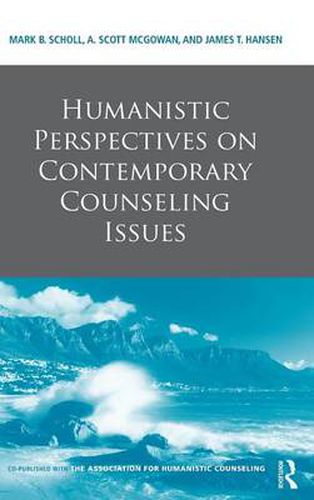Readings Newsletter
Become a Readings Member to make your shopping experience even easier.
Sign in or sign up for free!
You’re not far away from qualifying for FREE standard shipping within Australia
You’ve qualified for FREE standard shipping within Australia
The cart is loading…






Humanism is considered by many to be the foundation for the values and practices of counseling. This book explores and presents current counseling issues from a humanistic perspective, providing a valuable resource for counselors and therapists seeking effective approaches, founded on humanistic principles, to use in their practice. Each chapter describes the significance of a specific counseling issue, reviews the humanistic literature on this issue, discusses the theoretical model provided by a humanistic perspective, and concludes with applications and implications for practitioners. Situations considered include, among others, marital/couples counseling, multicultural counseling, and healing trauma, all of which have been shown to benefit from the use of humanistic approaches. Applications in educational settings, such as addressing school violence, working with at-risk youth, and counseling in college and university settings, are also discussed. The book concludes with a section on uses of humanistic approaches in counselor education and training. After reading this book, practitioners will be inspired to advocate for counseling’s holistic and empowering approach to helping all individuals across the lifespan.
$9.00 standard shipping within Australia
FREE standard shipping within Australia for orders over $100.00
Express & International shipping calculated at checkout
Humanism is considered by many to be the foundation for the values and practices of counseling. This book explores and presents current counseling issues from a humanistic perspective, providing a valuable resource for counselors and therapists seeking effective approaches, founded on humanistic principles, to use in their practice. Each chapter describes the significance of a specific counseling issue, reviews the humanistic literature on this issue, discusses the theoretical model provided by a humanistic perspective, and concludes with applications and implications for practitioners. Situations considered include, among others, marital/couples counseling, multicultural counseling, and healing trauma, all of which have been shown to benefit from the use of humanistic approaches. Applications in educational settings, such as addressing school violence, working with at-risk youth, and counseling in college and university settings, are also discussed. The book concludes with a section on uses of humanistic approaches in counselor education and training. After reading this book, practitioners will be inspired to advocate for counseling’s holistic and empowering approach to helping all individuals across the lifespan.